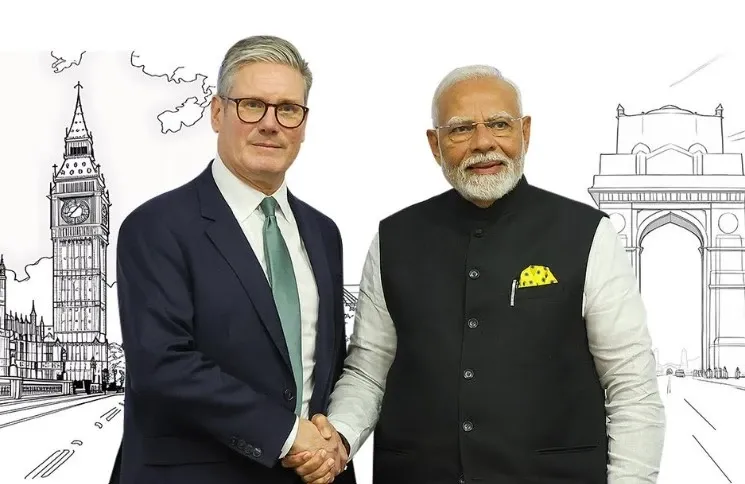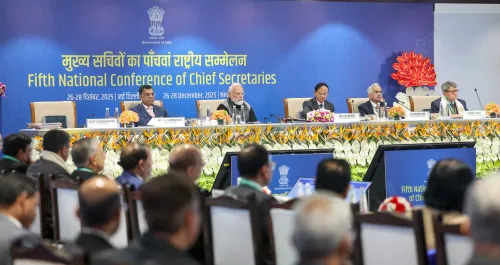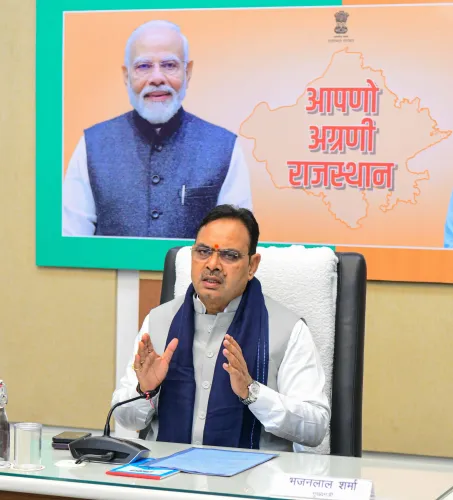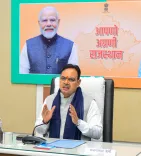What is the transformative impact of the India-UK CETA?

Synopsis
Key Takeaways
- Transformative agreement between India and the UK.
- Projected annual trade boost of $34 billion.
- Tariff reductions on 90% of British products and 99% of Indian exports.
- Extensive benefits for farmers, MSMEs, and consumers.
- Strengthens the strategic partnership between the two nations.
New Delhi, July 25 (NationPress) Prime Minister Narendra Modi on Friday commended the groundbreaking India-UK Free Trade Agreement (FTA), referring to it as a transformative milestone in the bilateral economic landscape.
In a post shared by MyGovIndia on the social media platform X, PM Modi stated: “An enlightening thread, offering insights into the transformative effects of the India-UK CETA…”
The thread, titled “A People’s Deal Begins Now!”, underscores the extensive advantages of the newly ratified India-UK Comprehensive Economic and Trade Agreement (CETA). It characterizes the agreement as a revolutionary pact that will open up global opportunities for Indian farmers, MSMEs, youth, women entrepreneurs, and professionals.
Signed during PM Modi’s significant visit to the United Kingdom, the FTA signifies a crucial juncture in India-UK relations. The pact is anticipated to boost bilateral trade by an estimated $34 billion annually.
Under the terms of the deal, India will reduce tariffs on 90% of British products, while the UK will cut duties on 99% of Indian exports. This major reduction of tariff lines and regulatory obstacles across various sectors aims to improve market access and lower costs for businesses on both sides.
UK Prime Minister Keir Starmer also hailed the agreement, asserting: “Our landmark trade deal with India is a significant victory for Britain. It will create thousands of British jobs, unlock new business opportunities, and stimulate growth throughout the country.”
For Indian consumers, the agreement will lower prices on imported items such as Scotch whisky, gin, luxury vehicles, cosmetics, and medical devices. Indian exporters, particularly in textiles and leather, will benefit from zero duties, enhancing their competitiveness against countries like Bangladesh and Cambodia.
The agreement also guarantees that Indian agricultural exports achieve tariff parity with leading European exporters, such as Germany, a move projected to significantly aid Indian farmers.
As India and the UK strengthen their strategic and economic connections, this FTA is celebrated as a people-centric pact poised to redefine trade relations and foster growth across sectors on both sides.










